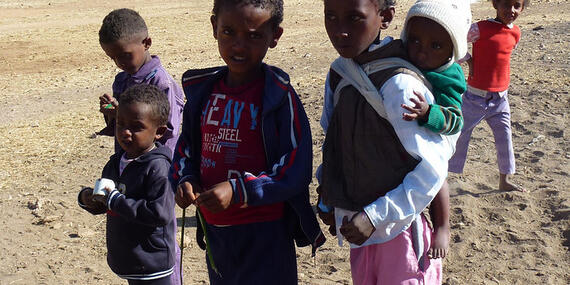
Please refer to the attached Infographic.

Following a border conflict with Ethiopia from 1998 to 2000, Eritrea experienced a prolonged "no-war, no-peace" situation and faced international sanctions for a decade. Normalization of relations with Ethiopia in 2018 and the lifting of sanctions have allowed for gradual development, but Eritrea remains vulnerable to economic, climate, and external shocks. The economy relies heavily on services and industry, while agriculture employs the majority of the population. Development challenges persist, exacerbated by periodic droughts and food insecurity. Despite progress in some areas, data on progress towards Sustainable Development Goals is limited.
The OCHA Country Office in Eritrea was established in 2000 after the border conflict with Ethiopia. It operates from Asmara, providing coordination, advocacy, information management, and resource mobilization for life-saving activities. Key drivers of vulnerability in Eritrea include harsh environmental conditions, climate change, food insecurity and limited access to safe water and healthcare. Coordination is done through development mechanisms and the Strategic Partnership Cooperation Framework. Projects in health, food security, education, water, sanitation and hygiene and child protection aim to respond to urgent needs. OCHA supports resource mobilization and manages the Central Emergency Response Fund (CERF), which has funded basic service priorities in Eritrea, mainly through its Rapid Response and Underfunded Emergencies Window, with a total of US$55.2 million allocated since 2006. OCHA facilitates the CERF allocation process, advocating for allocations and coordinating the prioritisation of CERF grants, and reporting on the progress of the selected projects. OCHA has also supported Eritrea through the emergency cash grant for desert locust response.
Drought remains the key driver of needs for vulnerable people in Eritrea, having a multi-sectoral impact, particularly on those living in the most drought-affected areas of the Northern Red Sea, Southern Red Sea and Anseba regions, as well as those in hard-to-reach areas across the country. While access to improved drinking water has recently increased, a significant portion of the rural population in Eritrea does not have access to improved and safe water sources. Access to health services in remote and hard-to-reach areas is a cause for concern, mainly for maternal health, newborn health, immunization, and non-communicable disease (NCDs). Other needs include education support for many out-of-school children and access to improved sanitation. Furthermore, due to recent conflict in Sudan since mid-April, a number of Sudanese and other nationals have crossed the border into Eritrea in search of protection and humanitarian assistance.
To address urgent humanitarian needs, a total of US$720 million is required under the current five-year Sustainable Development Cooperation Framework (2022-2026). Among this, approximately $27.3 million is designated for life-saving or life-sustaining projects slated for implementation in 2023, specifically targeting the most vulnerable in all six regions of the country. Since 2013, these vital initiatives have been coordinated through regular development mechanisms within the joint UN-Government Strategic Partnership Cooperation Framework. Within this framework, basic social services are delivered to those most in need. The OCHA Country Office, in close collaboration with UNCT members in Eritrea, spearheads humanitarian analysis, prioritisation, and response through coordination of 14 projects led by operational UN agencies, working closely with their government implementing partners.